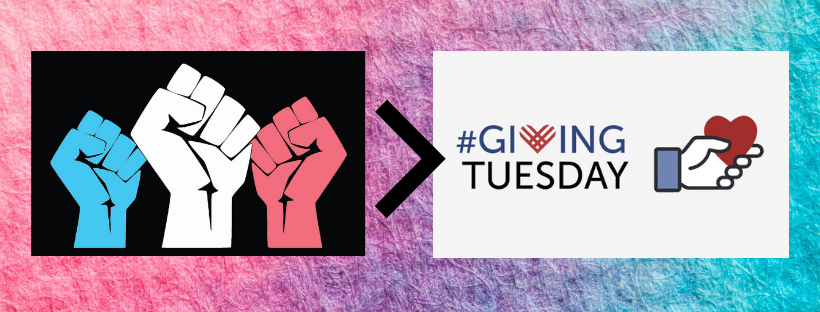What your gut is telling you is actually true. It doesn’t feel good for a reason – let’s talk about what that reason actually is. Let’s talk about the colonial pathway that development organisations follow. From Healing Solidarity’s 2020 Conference
When you look at your organization’s #GivingTuesday campaign, designed to get people in rich countries to open their wallets, do you feel uncomfortable about the way the work you do is being described? Or do you see your values or the values your organization represented?
The way we communicate about the work we do in the so-called ‘global development’ sector and how it needs to change – to become more just, equitable and inclusive – is just one of the many topics that we at Healing Solidarity have been questioning over the past few years.
And so if those #GivingTuesday fundraising tactics weigh heavy on your conscience, we want you to know…you are not alone.
If you want to see our whole sector communicate more honestly, there is a home for you at Healing Solidarity. At our monthly #GlobalDev Communicators Connect gathering for people who want to tell our stories differently, we warmly welcome you to find kindred spirits and resources that will help you ask questions inside your organization, explore alternatives, and to help you challenge the idea that “whatever strategies get money through the door are justified, since the resources are going to a good cause.”
We know that relying on old notions of charity and saviorism in our communications, let alone our programming, is not good enough. Healing Solidarity believes that in the global development sector, we need to deepen our analysis of the problems at hand and our role within a global “culture of charity”.

#GivingTuesday was a campaign created to help the nonprofit sector fundraise following the U.S. “shopping holidays” of Black Friday and Cyber Monday, to imbue generosity into the consumption. It was initially created by New York City’s 92nd Street Y in partnership with the United Nations Foundation in 2012. Last year nonprofits raised almost US$2 billion on #GivingTuesday. This giving “holiday” may indeed make people feel better about all they bought in a manufactured frenzy of hyperconsumerism. But it’s part of a system in which governments and politicians prioritize the extraction and exploitation of natural resources and labor to feed wealth accumulation, with brazen disregard for the human lives upon which our global and local economies depend.
We know it’s not possible for the one-off donations or the actions of one individual or organization to “change the world”. Rather we need to admit how complex it really is to create change.
Healing Solidarity exists to keep pushing beyond savior mentalities, acknowledging the ambiguity, disappointment, and discomfort inherent in this work that has fueled isolation, burnout, a lack of creative thinking, complicity in unjust systems, and values/ethical misalignment in our sector.
At Healing Solidarity we believe it doesn’t have to be this way.
In this new reality that 2020 offers, the global development sector has an opportunity to concretize – in practice – our notions of interdependence, of care and consent, and of trust. Now is the time that leadership and individual actions within complex systems can challenge and transform hierarchical structures and dominant culture ways of working.
Now is the time to tell a different story about global solidarity – to risk the honesty of how complicated it is to liberate ourselves from oppressive global economic systems.

Since 2018, Healing Solidarity has been offering an online platform, an annual conference, and ongoing events to create a space for us to connect and support each other in making the changes our sector needs. It’s also been a place to have more honest conversations about racism and healing, and where we imagine the new world that is becoming possible.
It takes money to do our work – coordination, speaker honoraria, technology to give just three examples. But we’ve been operating on a shoestring budget, dependent on thousands of volunteer hours, a small grant, and member donations.
We are not asking for a #GivingTuesday “click” to assuage any feelings of sadness, pity, guilt, or shame in response to the world’s suffering. Instead, we are asking for financial contributions to our work as you reflect on the deeply-rooted and connected issues in our sector, which have been laid bare in the wake of the #AidToo sexual abuse scandals, the global COVID-19 pandemic, and the #BlackLivesMatter uprisings around the world.
Healing Solidarity wants to continue to help people across the sector to challenge the status quo and so we are asking you to become a sustaining member and support the work of Healing Solidarity this year in recognition of the energy, time, skills, money and effort needed to offer spaces like the Healing Solidarity online platform, annual conferences, regular events, and ongoing practice groups.
Becoming a sustaining member of Healing Solidarity means committing to rethinking, reimagining, and reshaping the future of our sector. We start by aligning our values with our dollars. Together we can promote healing from the past, generate a new narrative, and establish new ways of working.
Not just on #GivingTuesday, but every day throughout the year.
***
Related Posts
#GivingTuesday is over: Now what to do about those objectionable fundraising messages
You’re invited: Healing Solidarity
Ways to be in action against anti-Black racism
Willing to say what needs to be said
Courage, resolve and togetherness: Opportunities to connect and learn
Reimagining Nonprofit Communications in a Hyper-Connected World

